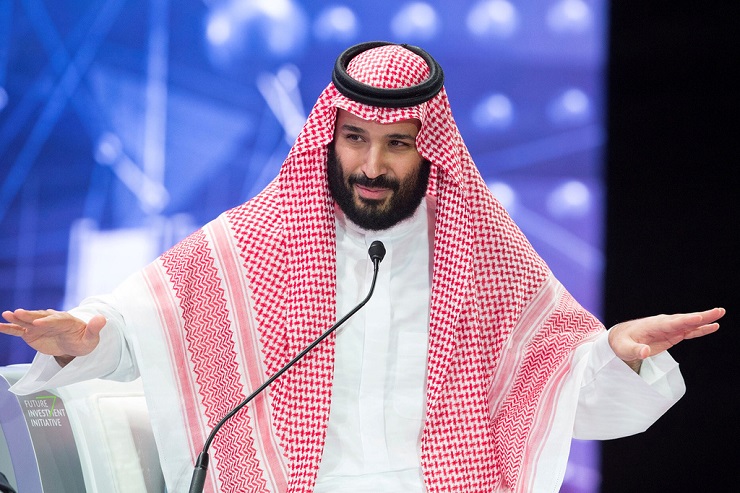After Israel signed the Abraham Accords in 2020 to normalize relations with the UAE and Bahrain, and then with Morocco, whether Saudi Arabia will be next in line in this process is being actively discussed in the United States, Israel, and the Middle East in general. The intensity of such discussions increased as the Saudi Kingdom began to introduce adjustments to foreign policy, such as stable diplomacy with Iran, making it impossible to interact with Israel, such as the situation with the UAE.
Looking back, Saudi-Israeli relations were mainly due to the close personal relationship between Crown Prince Mohammed bin Salman and Jared Kushner, the son-in-law of the former US President Donald Trump. Kushner frequently bypassed key US State and Department of Defense officials to push bin Salman into a sharp regional power game that the US foreign policy bureaucracy considered reckless but which was favored by Israel. In response, Kushner provided the Saudi Crown Prince with White House support, allowing bin Salman to play power games such as the blockade of Qatar, the kidnapping of the Lebanese Prime Minister and cleansing internal rivals.
It is no secret that the majority of Israelis continue to consider Saudi Arabia the most coveted prize in the process of normalizing the situation around Israel. Opinion polls have highlighted this in the months following the signing of the Abraham Accords. The Mitvim Institute’s Israeli Foreign Policy Index showed that Saudi Arabia is viewed by Israelis as by far the most important Arab country to develop cooperation with. In the Geneva Initiative poll, the Israelis again ranked Saudi Arabia well above other Arab countries on the most valuable target for Israel’s next peace deal list. Reports in November 2020 of a trilateral meeting between former Prime Minister Benjamin Netanyahu, Crown Prince of Saudi Arabia Mohammed bin Salman and former US Secretary of State Mike Pompeo greatly strengthened hopes in Israel that the desired rapprochement with Riyadh was only a matter of time.
But these hopes never came true. Even worse, this year, such a move by Saudi Arabia has become even more distant. The controversy over Israel among the Saudi royal family has intensified significantly against the backdrop of deteriorating attitudes towards bin Salman from the new White House Administration and its desire to keep the Saudi crown prince at arm’s length over his involvement in the assassination of opposition Saudi journalist Jamal Khashoggi. In addition, Riyadh has opened channels of dialogue with Iran, reflecting a different approach from Israel’s.
Along with this, Saudi Arabia has made repeated statements linking rapprochement with Israel with progress in the Israeli-Palestinian peace process. Riyadh’s commitment to the Palestinian issue is not just words. It is reflected in the peace initiatives promoted by the Saudis over several decades, in the King Fahd of Saudi Arabia plan 40 years ago (1981) and the Arab Peace Initiative almost 20 years ago (2002). However, Riyadh has made some conciliatory gestures towards Israel over the past decade. Including, among other things, coordination with Israel on security issues in Iran, participation of former senior Saudi Arabian officials in strategic dialogues and conferences with Israeli counterparts, unofficial visits of delegations to Jerusalem and the Al-Aqsa Mosque, and confidence-building measures by religious leaders (such as visits to synagogues abroad and Auschwitz, among other things). There was also permission to fly to and from Israel through the airspace of Saudi Arabia, and more recently, the first interstate sports competition in judo at the Olympic Games in Tokyo.
At the same time, Saudi Arabia emphasizes that good relations with Israel will take place only after the return of the Palestinians and Israelis to the negotiating table. This negotiation request was pointed out on October 15 by the Minister of Foreign Affairs of the Arab monarchy, Prince Faisal bin Farhan Al Saud. According to him, the peace process between Israelis and Palestinians is a strategic necessity for the region.
The readiness of Saudi Arabia to take a step towards normalization with Israel was confirmed the other day by Abdallah Al-Mouallimi, the Kingdom’s permanent representative to the UN, in an interview with the Arab News newspaper. However, he simultaneously made it clear that this would only happen if Israel began to comply with the 2002 Arab Peace Initiative requirements. He recalled that the Arab Peace Initiative envisages ending the occupation of all Palestinian lands seized by Israel in 1967, creating an independent State of Palestine with its capital in Jerusalem and respect for the Palestinian rights, primarily to return and to self-determination. According to Abdallah Al-Mouallimi’s opinion, if all the conditions of the global Arab community are met, Tel Aviv can count on a bonus, which it could not dream of even in its brightest fantasies: the entire Islamic world, all 57 countries of the Organisation of Islamic Cooperation, will follow the example of Saudi Arabia. He emphasized an axiom known to everyone in the world: the key to peace lies in a just solution to the Palestinian issue. “There is no other solution to the conflict, and there cannot be,” concluded Al-Mouallimi.
Despite the apparent benefit for Israel from the settlement of relations with Saudi Arabia, Tel Aviv has not yet made any reciprocal steps, being still psychologically unprepared to agree with the “Arab initiative.” Any concessions from Riyadh are also unlikely to be expected soon, as well as the signing of an agreement on normalization between Israel and Saudi Arabia. At least until the current Saudi king, who represents the camp of the old Arab elite, quite conservative towards Israel, is replaced. King Salman wants to remain in the history of the Arab street and the Arab world as a man who did not betray his solidarity with the Palestinian people, as one of the most outstanding leaders of the Arab Ummah.
Valery Kulikov, political expert, exclusively for the online magazine “New Eastern Outlook”.

